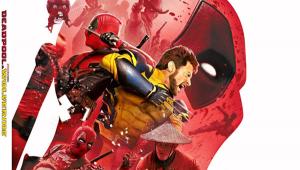Cracking DVD Copy Code Illegal, Judge Rules
The software was originated by hackers exploiting exposed "keys" in the DVD copy-prevention scheme known as the Content Scrambling System (CSS), and has been widely circulated on the Internet. With it, computer users have been able to make digital copies of DVD movies, although not in their original high-resolution format. Digital copies of DVD movies are now being shared over the Internet, in clear violation of the film industry's copyrights. Earlier this year, the film industry sued 2600.com for copyright violation.
2600.com's operator, Eric C. Corley, had argued that the development, posting, and use of the software fell under "fair use" provisions of US copyright law. Because DeCSS was purportedly developed to allow Linux users to watch DVDs on their computers, he argued that it was a protected form of free speech. He also claimed that he should be excluded from being prosecuted for experimenting with copy-code encryption or posting his results because he is a "researcher."
Judge Lewis A. Kaplan rejected these contentions and ruled that 2600.com stop posting DeCSS and remove all links to other sites posting it. Kaplan stated that one of the intentions of Congress when it enacted the Digital Millennium Copyright Act in 1998 was to prohibit exactly the sort of copyright-violating software Corley's site was promoting. Furthermore, Kaplan pointed out, DeCSS was originally written as a Windows program.
Lawyers for motion-picture studios argued that they had invested in DVD on the assumption that copyright law would ensure their right to control the sales and distribution of movies in the digital format. Judge Kaplan agreed. His ruling is considered especially important due to the prestige of his Manhattan court, but is still subject to review by higher courts. Corley's attorneys said they will appeal the ruling, and expect the fight to go all the way to the Supreme Court.
The film industry's suit against 2600.com is "a very important case dealing with how intellectual material is going to be transmitted over the Web," according to Martin Garbus, a lawyer for Corley. "The Internet, as a free exchange of information, is crippled by this decision." The case is the first test of the Digital Millennium Copyright Act. Kaplan's ruling applies only to 2600.com; other sites posting the software will be pursued individually by the film industry until the Supreme Court issues a comprehensive ruling.
- Log in or register to post comments






















































